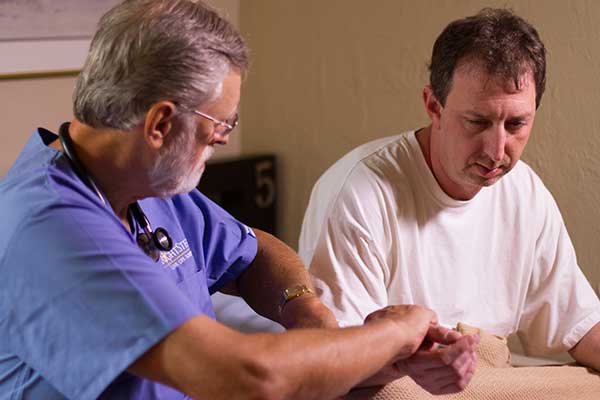Your loved one has just returned from rehab. You’re excited to see them and proud of the hard work they’ve done to address their addiction. But your head is probably also filled with worry. You may fear their personality will be different or that they’ll somehow change you. If the individual coming home is your spouse, you may wonder if they’ve changed “too much” or if they’ve decided their life should head in a direction that doesn’t include you. Addiction takes a heavy toll on families. But with a fresh start at hand, there is hope for a brighter future with a sober loved one who can now be fully present in mind, body and spirit. Let’s take a look at some post-rehab fears and how things might actually play out.
#1 They’ll Come Home a Different Person
If the addiction was always part of the relationship, you may have to, in a sense, get to know someone you’ve never met. It’s scary because you don’t know if either of you will decide you are ultimately compatible. But the good news is that you will now be dealing with the real person, not someone who is covering up their pain with drugs. It’s also unfortunately true that some people form new relationships while they’re in treatment. Because no one working on themselves in rehab has the bandwidth to emotionally engage in a new relationship, treatment centers highly discourage, even outright forbid, these “rehab romances.” If your spouse comes home wanting a separation or divorce due to becoming infatuated with someone they met in rehab, they likely didn’t take treatment seriously and you may not be ready to welcome them back into your life anyway.
#2 They’ll Change Your Life
When a loved one returns from drug rehab, the first rule for family members is to remove any alcohol or other addictive drugs from the house. It’s also important to hide or remove prescription pill containers as even the sight of them can be a trigger for use. But you may be concerned that your loved one will make you feel uncomfortable about your own alcohol use when meeting up with friends outside the house. You may also resent them for the fact that you can’t just grab a beer from the refrigerator when you get home after a long day at work. If you’re feeling this way, it may be time to come to terms with your own substance use. You and your significant other will both benefit from finding new ways to have fun without the use of alcohol or other drugs. This is how addiction recovery can affect families in a very positive way.
#3 They Won’t Be Dependent on You Anymore
That’s what you are aiming for, of course, that they’ll learn to help themselves and stand on their own two feet. But it can be scary to think what might have been the main glue in the relationship — their need for your money, time, energy, shelter — has vanished. Helping others can become addictive in itself. This is a good time to deal with your fears and how they may subtly be holding your loved one back from a full recovery.
#4 This Will All Be for Nothing
The biggest fear people have when a family member comes home from rehab is that they’ll relapse. While rehab is not a cure, your loved one has learned a lot about themselves in therapy and will return to the family with new, healthy coping tools to deal with stress and cravings. Recovery has to be seen as a series of steps toward a goal. Relapse is not only possible, but likely. According to the National Institute on Drug Abuse, 40% to 60% of addicts will relapse at least once, and for opioid addicts, that number is even higher. And sometimes it takes that relapse to really bring home to a person that they do need help, that they can’t do it alone. And that can be the best lesson they learn.
#5 They’ll Resent You for Pushing Them to Get Help
You might fear your loved one will have hard feelings toward you when they return from rehab. Maybe you were the one who cut off funding, set up the intervention or insisted that they leave the house when they were in active addiction. In reality, far from being angry at you, once in recovery your loved one is much more likely to thank you for the actions you took that convinced them to get help. Almost every recovery story includes a time when family and friends told a loved one that enough was enough and stopped all behaviors that could be seen as enabling their drug use. Although you may start out as the “bad guy,” your loved one is likely to come to view you as the one who saved their life.






